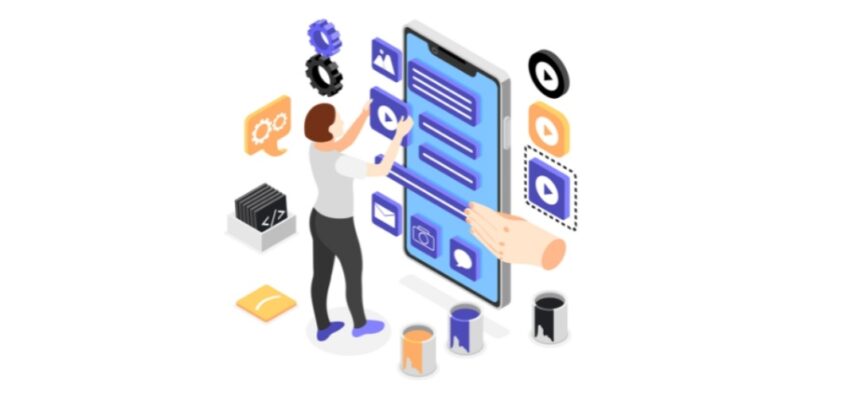The mobile app ecosystem has transformed dramatically over the past decade. Today, users demand seamless experiences, constant updates, and intelligent features that anticipate their needs.
Businesses must adapt quickly to remain competitive, and Artificial Intelligence (AI) has emerged as the ultimate game-changer in app maintenance.
In 2025, AI is not just an optional add-on—it’s an essential component that ensures apps stay functional, secure, and user-friendly.
From predictive algorithms to automated updates, AI is transforming how businesses manage app performance, security, and engagement.
Unlike traditional maintenance methods that rely on reactive problem-solving, AI allows proactive management, helping businesses stay ahead of user expectations.
This revolution is reshaping mobile app maintenance from a reactive task into a strategic, intelligent process.
Get to know all about it through this blog:
The Traditional Challenges in Mobile App Maintenance
Mobile app maintenance has historically been a complex and resource-intensive task. Developers had to monitor performance manually, track user complaints, and release updates periodically. While this approach maintained functionality, it had several limitations:
- Reactive Issue Management – Problems were fixed only after users reported them, often resulting in negative experiences.
- Time-Consuming Monitoring – Manually sifting through logs and analytics made maintenance slow and inefficient.
- Delayed Updates – Compatibility issues with new operating systems caused downtime, frustrating users.
These challenges highlighted the need for smarter solutions. Companies began exploring AI-driven maintenance tools that could predict problems, optimize resources, and deliver a seamless user experience.
Role of AI in Mobile App Maintenance
AI is revolutionizing mobile app maintenance by predicting issues before they occur and automating updates seamlessly.
It monitors performance, detects bugs, and strengthens security in real time. This ensures your app stays smooth, reliable, and always user-ready.
Let’s get to know the role one by one:
► AI-Powered Predictive Maintenance
One of the most significant ways AI is changing mobile app maintenance is through predictive analytics. By analyzing historical data, usage patterns, and system logs, AI algorithms can detect anomalies before they become full-blown issues.
For instance, AI can identify a memory leak or performance bottleneck in real-time and suggest fixes proactively. This reduces downtime and improves user satisfaction. In 2025, predictive analytics will have become an integral part of Mobile App Maintenance Services, allowing businesses to move from reactive fixes to proactive problem prevention.
► Automated Bug Detection and Resolution
Beyond predictions, AI now enables automated bug detection and resolution. Machine learning models scan codebases, detect vulnerabilities, and even apply fixes autonomously in certain scenarios.
This reduces dependency on human intervention, allowing development teams to focus on innovation rather than routine maintenance. When organizations hire mobile app developers trained in AI-assisted maintenance, they gain the advantage of faster updates, fewer crashes, and higher user engagement.
► Personalized User Experience Through AI
AI also plays a crucial role in enhancing the user experience. By analyzing user behavior, AI can customize interfaces, recommend features, and adjust app functionality to individual preferences.
For example, a fitness app can suggest workouts based on previous activity, while an e-commerce app can highlight products a user is likely to buy. These personalized enhancements improve retention rates and drive user satisfaction, setting AI-powered apps apart from traditional counterparts.
► AI in Resource Optimization
Another game-changing application of AI is resource optimization. Apps need to manage server loads, database queries, and network traffic efficiently, especially during peak times.
AI algorithms can dynamically allocate resources, balance server loads, and predict usage spikes. This ensures apps remain responsive even under heavy traffic. For businesses, this translates into reduced operational costs and better scalability without compromising user experience.
► Enhancing App Security with AI
Security is a critical aspect of mobile app maintenance, and AI is transforming how threats are detected and mitigated. AI-driven tools can monitor unusual user behavior, detect vulnerabilities, and block potential attacks in real-time.
From phishing attempts to malware detection, AI continuously learns from emerging threats, creating a dynamic defense system that outperforms traditional security measures. By integrating AI into security protocols, businesses can protect sensitive data and build user trust.
Real-World Examples of AI-Driven Maintenance
Many leading companies have adopted AI to transform their app maintenance strategies:
- T-Mobile’s IntentCX leverages AI to proactively resolve customer issues and enhance app performance.
- Google’s Gemini Live uses AI to monitor system health and provide seamless assistance for mobile games.
These real-world applications demonstrate AI’s effectiveness in ensuring apps are reliable, personalized, and efficient.
The Future of AI in Mobile App Maintenance
Looking forward, AI will continue to redefine mobile app maintenance. Emerging technologies such as augmented reality (AR) and the Internet of Things (IoT) will integrate AI-driven maintenance solutions to provide intelligent, connected experiences.
Continuous learning models will enable apps to adapt dynamically to user needs, optimize resources, and even anticipate future behavior. Businesses that embrace AI-powered maintenance will enjoy improved performance, enhanced security, and greater user satisfaction.
Conclusion
AI has fundamentally transformed mobile app maintenance services. From predictive analytics and automated bug fixes to personalized experiences and enhanced security, AI enables businesses to maintain apps more efficiently and effectively than ever before. As the mobile landscape grows more competitive, organizations that leverage AI in maintenance will ensure superior app performance, increased user retention, and sustained growth throughout 2025 and beyond


